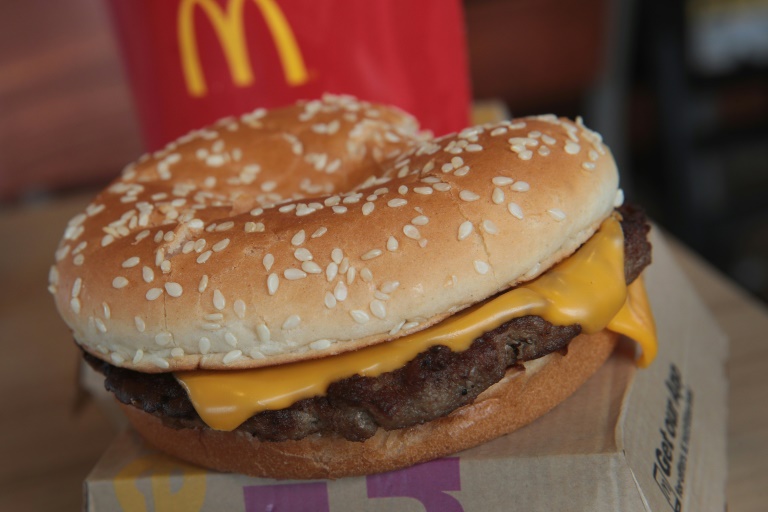Science
Study Links Ultra-Processed Diets to Weight Gain in Men

Recent research indicates that diets rich in ultra-processed foods significantly contribute to increased weight gain in men, disrupt hormone levels, and introduce harmful substances associated with declining sperm quality. This study underscores the notion that not all calories hold the same value, suggesting that ultra-processed foods pose specific threats to men’s health.
Men consuming large quantities of ultra-processed foods are likely to gain more fat compared to those who eat minimally processed meals, even when their caloric intake remains constant. The research highlights shifts in male hormone levels, particularly a decline in testosterone, along with an increase in pollutants. The findings reveal that individuals tend to gain more weight on ultra-processed diets, which consist of foods containing additives such as emulsifiers, colorings, or preservatives, compared to those following a minimally processed diet.
Understanding the Research Findings
The study, led by Jessica Preston from the University of Copenhagen, emphasizes that the processing itself, rather than overeating, is the primary factor responsible for the observed negative health effects. Preston stated, “Our results prove that ultra-processed foods harm our reproductive and metabolic health, even if they’re not eaten in excess. This indicates that it is the processed nature of these foods that makes them harmful.”
Additional alarming findings were published in a 2024 study in the British Medical Journal, which analyzed data from 9.9 million people worldwide. This research linked ultra-processed foods to a range of health issues, including an elevated risk of death from cardiovascular diseases, obesity, type 2 diabetes, sleep problems, and mental health disorders such as anxiety and depression.
Research Methodology
To ensure the validity of their findings, the researchers compared the health impacts of unprocessed and ultra-processed diets within the same individuals. A total of 43 men aged between 20 and 35 participated in the study, undergoing three weeks on each diet, with a three-month ‘washout’ period in between. The participants were divided into two groups; half started on the ultra-processed diet while the other half began with the unprocessed version.
Each group received either a high-calorie diet with an additional 500 calories per day or a normal calorie intake suitable for their size, age, and activity levels. Importantly, the subjects were not informed about which diet they were following. Both diets contained similar amounts of calories, protein, carbohydrates, and fats.
Results indicated that men gained approximately 1 kg more fat while on the ultra-processed diet compared to the unprocessed diet, regardless of their caloric intake. Furthermore, several cardiovascular health markers were negatively affected during this period.
Defining Ultra-Processed Foods
While there is no universally accepted definition, ultra-processed foods generally contain ingredients that are not typical in home cooking. These often include chemicals, colorings, and sweeteners designed to enhance the food’s appearance, taste, or texture.
Notably, the study revealed a concerning rise in the levels of the hormone-disrupting compound phthalate cxMINP, a substance commonly found in plastics, among men consuming the ultra-processed diet. Participants also experienced declines in crucial hormones such as testosterone and follicle-stimulating hormone, both vital for sperm production.
The long-term implications of these findings are alarming and suggest a pressing need to revise nutritional guidelines to better combat chronic diseases. The complete study is published in the journal Cell Metabolism, titled “Effect of ultra-processed food consumption on male reproductive and metabolic health.”
-

 Politics4 weeks ago
Politics4 weeks agoSecwepemc First Nation Seeks Aboriginal Title Over Kamloops Area
-

 World5 months ago
World5 months agoScientists Unearth Ancient Antarctic Ice to Unlock Climate Secrets
-

 Entertainment5 months ago
Entertainment5 months agoTrump and McCormick to Announce $70 Billion Energy Investments
-

 Science5 months ago
Science5 months agoFour Astronauts Return to Earth After International Space Station Mission
-

 Lifestyle5 months ago
Lifestyle5 months agoTransLink Launches Food Truck Program to Boost Revenue in Vancouver
-

 Technology3 months ago
Technology3 months agoApple Notes Enhances Functionality with Markdown Support in macOS 26
-

 Lifestyle3 months ago
Lifestyle3 months agoManitoba’s Burger Champion Shines Again Amid Dining Innovations
-

 Top Stories2 months ago
Top Stories2 months agoUrgent Update: Fatal Crash on Highway 99 Claims Life of Pitt Meadows Man
-

 Politics4 months ago
Politics4 months agoUkrainian Tennis Star Elina Svitolina Faces Death Threats Online
-

 Sports5 months ago
Sports5 months agoSearch Underway for Missing Hunter Amid Hokkaido Bear Emergency
-

 Politics5 months ago
Politics5 months agoCarney Engages First Nations Leaders at Development Law Summit
-

 Technology5 months ago
Technology5 months agoFrosthaven Launches Early Access on July 31, 2025









